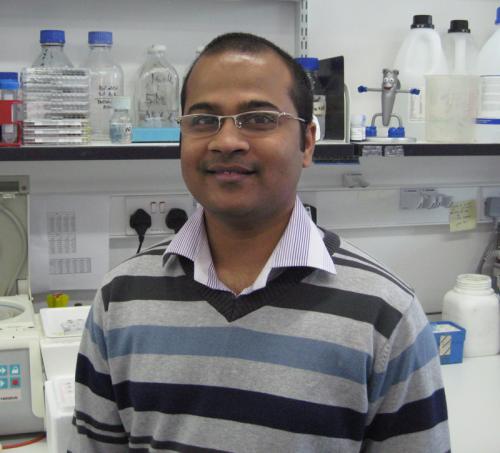
Dr Sambit Nanda, a senior research scientist in the Medical Research Council’s Protein Phosphoryation and Ubiquitylation Unit (MRC-PPU) at the University of Dundee, has been awarded a research grant of £15,000 from Tenovus, Scotland to continue his exciting new research on inflammasomes.
Inflammasomes are large multiprotein oligomers, which play important roles during microbial infections or when tissues are damaged. They produce potent pro-inflammatory cytokines that fight infection and also eliminate damaged cells. On the other hand, if inflammasomes are too active or are not switched off quickly enough, this can cause serious diseases ranging from auto-inflammatory and chronic disorders including atherosclerosis, type 2 diabetes, rheumatoid arthritis, chronic obstructive pulmonary disorder (COPD) and neurodegenerative diseases. There is therefore a need to develop new drugs to switch off the inflammasome when it is activated too strongly.
Sambit has recently identified an enzyme which plays an essential role in switching on one type of inflammasome, called the NLRP3 inflammasome and the aim of the Tenovus-funded project is to discover how this enzyme exerts its effect. If successful, the research could eventually lead to the development of improved drugs to suppress inflammasomes.
The research will be carried out in Sir Philip Cohen's lab in the MRC-PPU, which is based in the School of Life Sciences at the University.
Commenting on the award Sambit said:- “ I am very excited to receive the Tenovus award as this grant will provide financial support to carry out detailed biochemical analysis to understand how the NLRP3 inflammasome is activated. I hope that my research will identify new candidate proteins that can be targeted to develop drugs to treat inflammatory diseases.

